Don't Buy an Axe
You can map a nation's borders by the jokes that don't land
I read a version of this letter at Say The Thing, a monthly open reading series hosted by Simon Sweetman at Wellington’s Underworld Tavern. Thanks to Simon for the deadline & and a great night out!
Here’s how we cover Red Wind days in New Zealand:1
1) Post a photo of your fallen tree.
2) Post another photo once you’ve cut it, cleared it, and stacked it.
Last week’s hurricane-speed gales—three of them, scattered uneasily over seven spring days, some foretold and some out of the blue—laid down trees all over the Wairarapa. I could do a slide show here of dad-chat before & afters, but I’ll skip to the winner above. This planet-size macrocarpa met its maker last Thursday night out on mate’s farm. You win, bro. No after-photo required.
That’s his pic, and his dog named Punch. Punch is a good ol’ dog. I think Punch is sad about the tree.
In-person small talk follows the same routine. A teacher at our kids’ school detailed her family’s tree-clearing, then checked in on mine.
You come out alright?
We lost two silver birches in the front yard, I said. But we just rent, so I ain’t touching ‘em.
Dead silence. Gentle horror.
Baby trees, I mean! Skinny little things. Nobody got hurt.
Ah, she said, and we scooted on to the safety of weekend plans.
You can map a nation’s borders by the jokes that don’t land.
An American Knows His Rights
I was just cribbing a line from the late Mitch Hedberg: “I went to the Home Depot the other day, which was unnecessary…I need to go to the Apartment Depot. Which is just a big warehouse with people standing around saying Hey, we ain’t gotta fix shit.”
I do own an axe. I could go all George Washington out there, I guess. I tell myself I’m too busy. Anyhow I never bought a chainsaw.
A Nation of Lumberjacks
Kiwis just love to cut down trees! Fair enough. On a rainforest island, stumps equal civilization. I’ve seen model train setups of frontier times full of tiny, reverent stumps. Te Papa has an entire exhibit about clear-cutting, featuring both a petrified stump cut by ancient Maori adzes and a settler diary’s rapturous account of bush-clearing fire.
A Neighbor’s Axe, Part 1
When I first moved here I needed an axe to split a load of firewood. The local farm store had two models. I bought the fancy one, with a plastic handle in high-viz yellow. I felt proud, hefting my new blade in the garage’s fluorescent light. I told my boys down at the pub. Don’t buy an axe, mate, they all said. I got a shed full.
The Chainsaw Store
Instead they talked of chainsaws. Hard truths I’ve learned: sheep die and chainsaws break. Everyone hates the chainsaw shop in Greytown. Everyone hates the Carterton chainsaw shop, too. The stories are shaped like any car dealership tale. The damage is worse than you think. The dealer shrugs. Better to let it die, he says, then tries to sell you a replacement. The storyteller marches out, broken chainsaw in hand, and calls a mate to borrow his.
A Neighbor’s Axe, Part 2
America did the same epic clear-cut, but we don’t think about it much anymore. We switched stories once we hit the plains. Back in the primeval Wisconsin forest, Pa Ingalls famously hears the chop of a neighbor’s axe and freaks out. The mere sound of a fellow American cutting trees nearby is a pinch on his freedom! So he drags his family out to a stolen stretch of Kansas and builds a national metaphor on the prairie.
A Nation of Deadly Trees
Yeah, we’re closed, our principal called through the car window, her orange safety flapping like a set of high-viz wings. Wind screamed through the playground. In quieter days the two giant oaks watch over the kids like the Ents of Middle Earth. In 130 kph gusts you never know when such beasts will turn.
I drove home with the radio off, gripping the wheel as the hatchback skittered back and forth over the highway. At perhaps the same moment in Wellington, a falling branch killed a doctor walking alone on Mount Vic. Another walker found him sometime later. We don’t know how long he lay there, under a tree, out in the wind.
A Nation of Colonizer Trees
Wellington is all low-slung pohutukawa, curved for the wind. Cross the hill to the Wairarapa and you’re back in the interior North Island’s imported shire. Some invasive species are more welcome than others. Roses are beloved, but I’ve seen murdered Australian magpies pinned to a fence.
Foreign trees get a pass. When our landlords planted three very English silver birches in the front garden it felt like Greytown hosting an off-season Christmas Festival around Matariki each July. An angry local wind took the first birch a couple years back. Now another’s laying down, and the last is loose like a tooth.
The Hospice Juniper
I do own a yard tree. Not in New Zealand, but back in Texas. Years ago I bought an old adobe house out in Marfa, which I’ve kept ever since as a rental and a shrine. Out front of the house there’s a ragged old juniper, planted hard against the railroad ties that hold the yard’s slack caliche in place. It’s the American high-desert sort of juniper, more shrub than tree, with waxy leaf-ish feathers just this side of needles. Like pohutukawas they’re low-hipped and built to bend. A storm strong enough to knock it down would take the house first.
I bought the place from a friend’s grandfather, now passed on. Cuida ese arbol, he told me. Lo plantó mi papá. Take care of that tree, my father planted it. He gave no further instructions. I promised I would. Ain’t much to do, with a desert tree. They get lonely. You talk to them. You tell their stories from across the sea.
One season I brought my beloved childhood cat home to that house to die. I was 25, Tank was 23. She and I would sit out on the stoop and watch the trains roll by. She liked to rub her face against the juniper’s gnarled trunk to catch the scent of the local toms. Tank’s gone now, buried out back. The juniper waits for my return. //
On walking through trees, and burning them:
The Red Wind Warning is MetService’s rarely-used highest level. It’s also bitchin’ poetry. I’m here for making Red not just the warning, but the name of the wind itself.



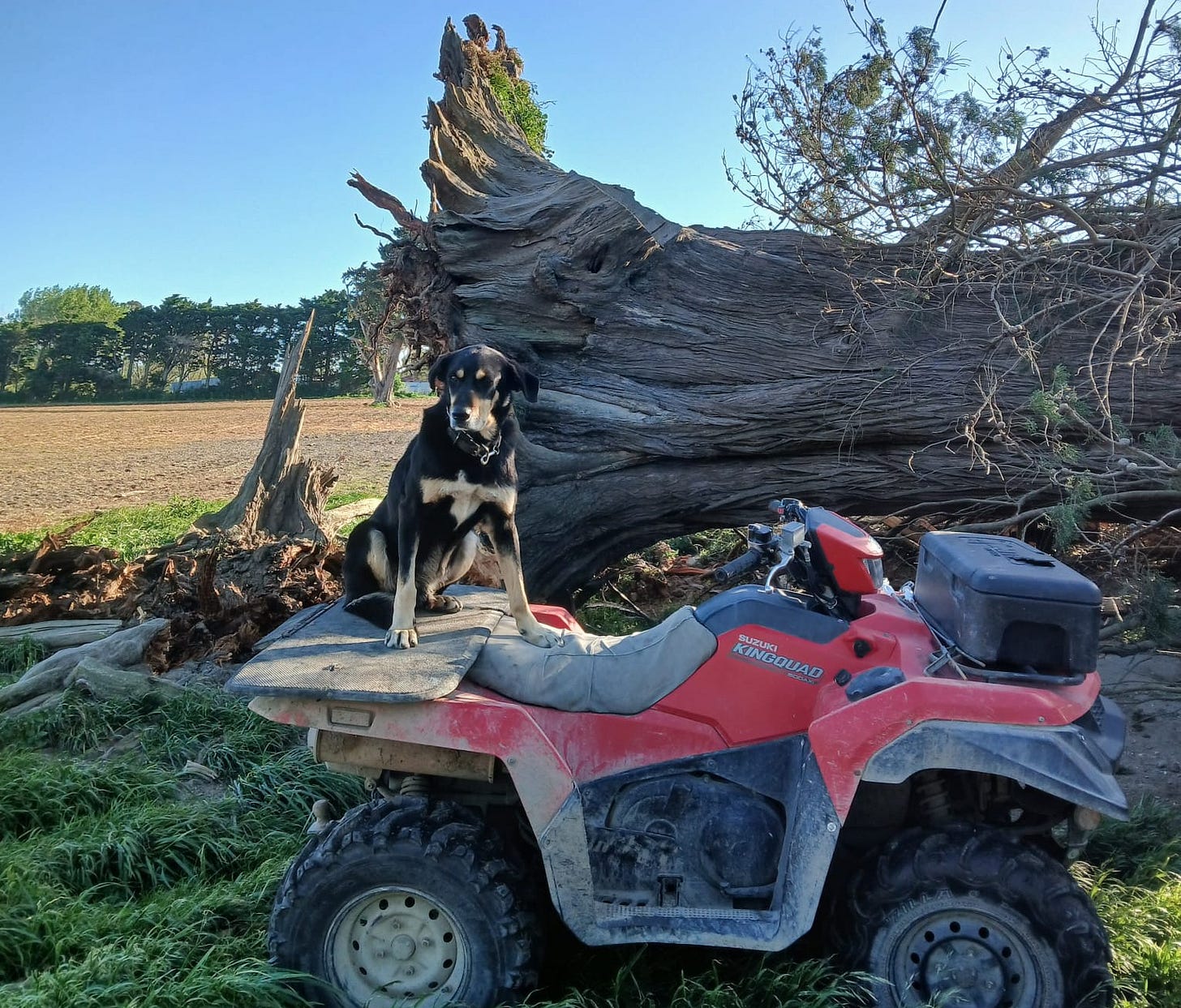
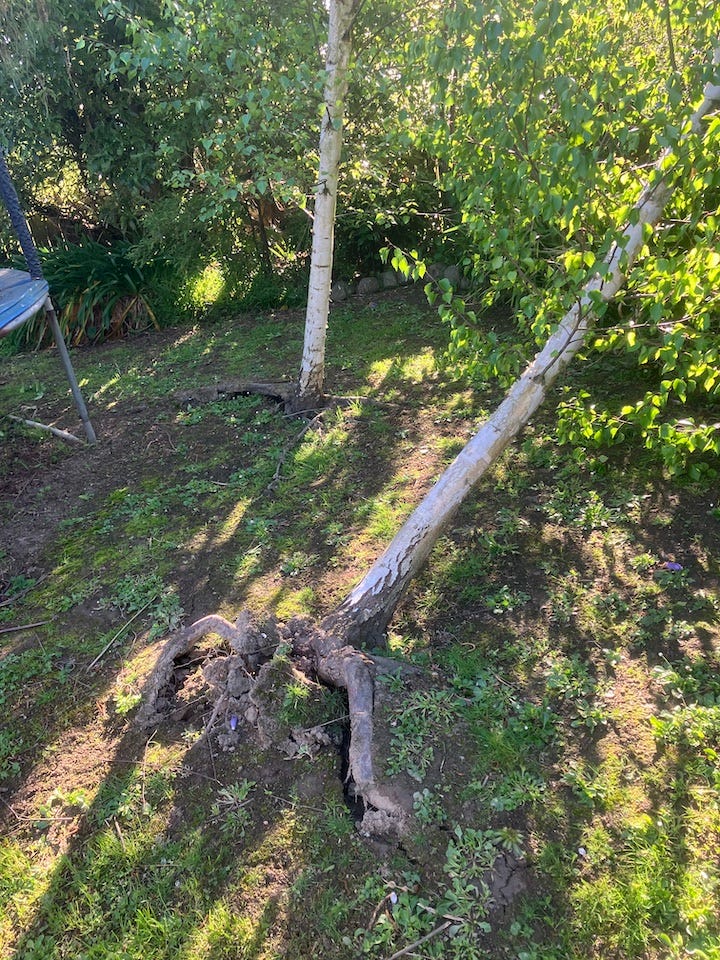
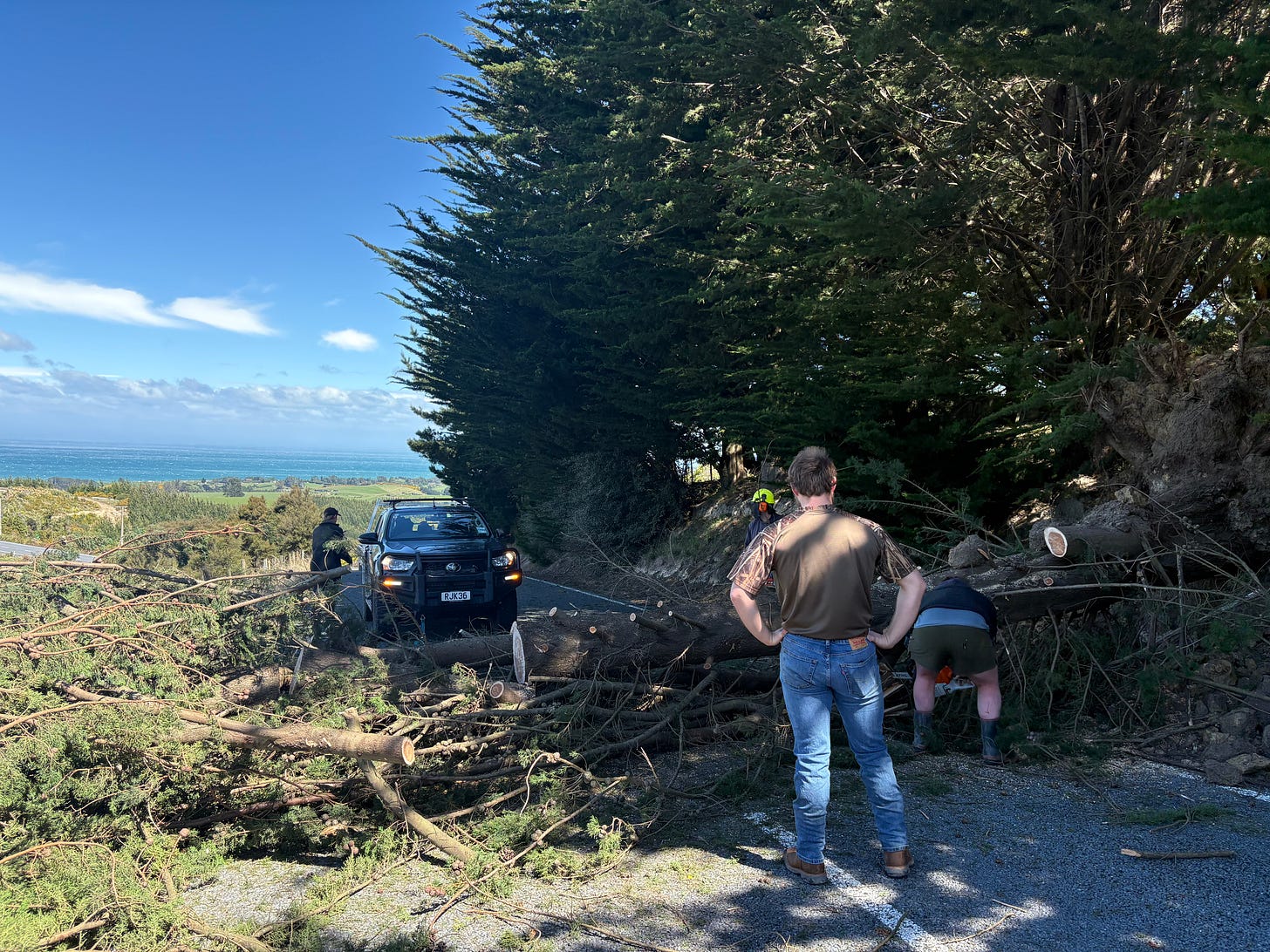
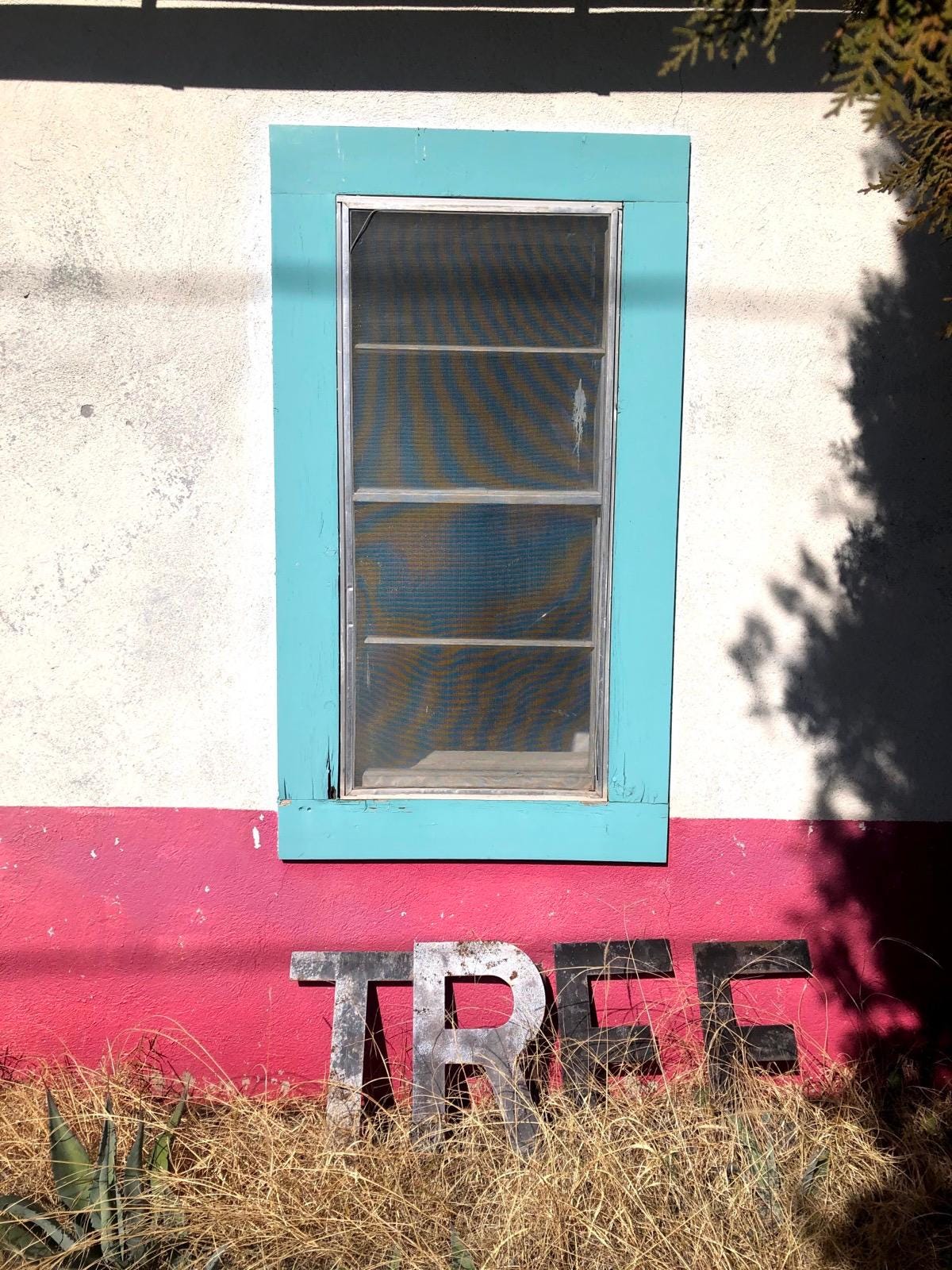
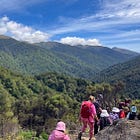
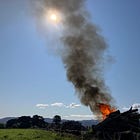
So great to have you read this live, and now to get to read it —your voice still here through the different form. Such a great piece.
I loved how specific this was (also personally love axes and chainsaws so always ready for a deep dive there) and how you used that as a way to describe life in NZ; a lovely window into a world!